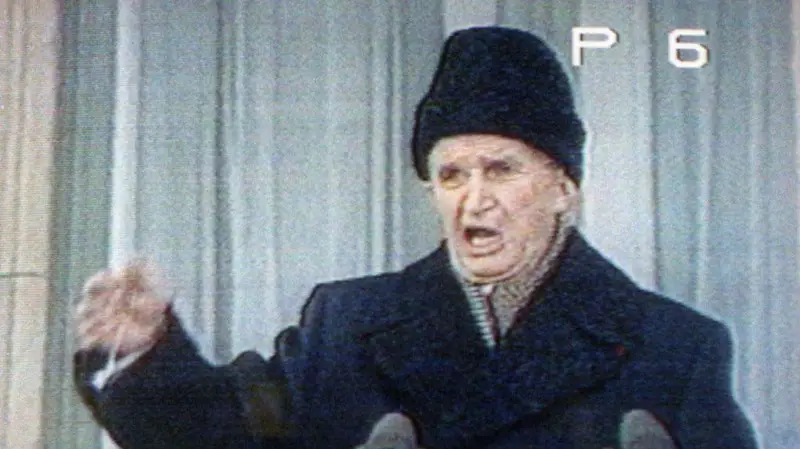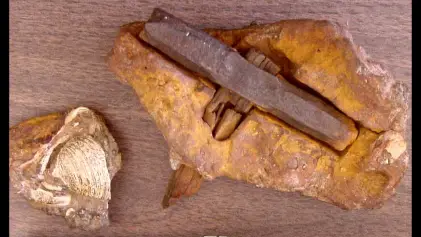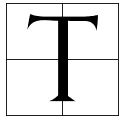 he Fall of the Berlin Wall was the beginning of the end for most of the Iron Curtain regimes part of the Soviet alliance known as the Warsaw Pact. The leaders of each of the Warsaw pact countries were for the most part puppets of the Soviet regime in Russia. As the power of the Federative Republic eroded, leaders of the puppet states became more independent. This was the case for one of the most prolific Communist leaders. First Secretary of the Romanian Workers’ Party Nicolae Ceaucescu.
he Fall of the Berlin Wall was the beginning of the end for most of the Iron Curtain regimes part of the Soviet alliance known as the Warsaw Pact. The leaders of each of the Warsaw pact countries were for the most part puppets of the Soviet regime in Russia. As the power of the Federative Republic eroded, leaders of the puppet states became more independent. This was the case for one of the most prolific Communist leaders. First Secretary of the Romanian Workers’ Party Nicolae Ceaucescu.
Ceaucescu was born into a poor peasant family in the south of Romania. His early years would be full of revolutionary behavior with him running away from home at the age of 9 to live with his sister in Bucharest. Here he would find his way into the then illegal Communist Party in 1932. Due to his involvement with the Communists Ceaucescu would go in and out of prison between the years of 1936 to 1944.
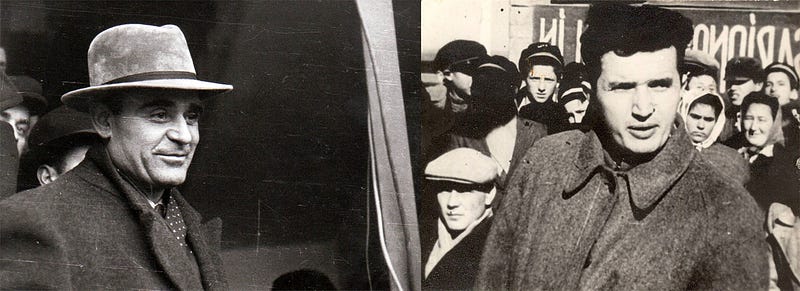
In 1943 he would be put in the same cell as Gheorghe Gheorghiu-Dej who at the time was the most prominent figure in the Romanian Communist Party. As a result, Ceaucescu became Dej’s protégé which allowed him to move up the ranks of the Communist party very quickly. At first, becoming the head of the Union of Communist Youth from 1944–1945 then was transferred to the head of Agriculture after Dej took power in 1947.
As the years passed, Ceaucescu would use his relationship with Dej to slowly move up the Communist party, reaching its highest position in 1952 when he was added to the Central Committee. By the time of Dej’s death, Ceaucescu had built enough of a power base to contend for being the leader of the Romanian Communist Party.
Dreams vs Reality
Ceaucescu was a big dreamer in terms of long-term goals. He saw a bright future for Romania where it would be possible for the country to become a world power. As a result, he set out to overhaul the Romanian economy making use of its natural resources.
At the time of his rule, a global recession in the price of crude oil was occurring. With Romania being a previous oil-producing country the infrastructure was in place to refine crude oil to its much more useful alternatives such as petrol. As Romania’s supply of oil started to run out, he planned on importing oil from Middle Eastern countries and refining it, selling it for a profit.
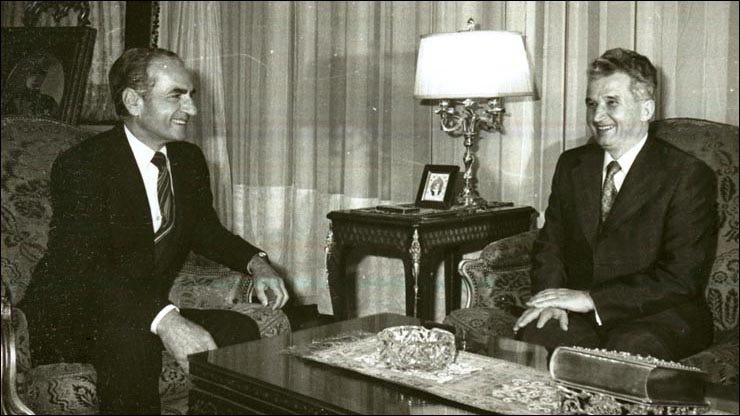
To do this, he took out massive loans in order to expand the infrastructure of the oil refining industry of Romania and to import the oil required for this project. In the end his plan didn’t pan out. Leaving the country in heavy debt.
What followed was a period of extreme economic destabilization as Ceaucescu poured all available resources into paying off Romania’s national debt. No thought was given to the situation of the citizens of Romania. People would go hungry while bread would be exported to aid the repayment effort.
The Fall
The collapse of the Soviet Union led to many of its satellite states breaking off from the Communist influence. Some broke away peacefully with the old communist leaders standing down on their own accord, but in other cases, the deposition of the old vanguard turned violent.
This was the case for our brutal leader. The end of 1989 was filled with dissent and demonstrations showing the opposition towards the communist government and especially towards Ceaucescu. In a bid to keep power Ceaucescu deployed the military to put down the protests but the death of Vasile Milea under suspicious circumstances led to much of the army defecting.
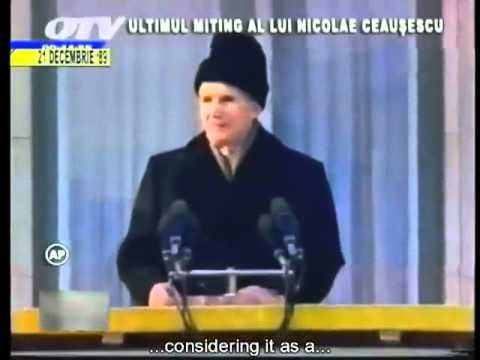
After a failed attempt to calm the crowd on 22 December 1989 Ceaucescu and his wife had to be evacuated via helicopter as the protestors forced their way into the presidential building. On the 24th the Romanian Salvation Front took over the country and started hunting down the old ruler.
On the 24th the newly formed government took Ceaucescu in and trialed him in a show trial akin to those done in the 1930s in the Soviet Union. No opportunity for the defense was given to the couple, and they were sentenced to death by firing squad on Christmas day on the 25th December 1989.
Aftermath
This would end the Communist rule in Romania leading to a period of corruption and exploitation by those who took power. A similar situation to what happened in many Warsaw Pact states took place. Many of the higher-ups of the communist party took control of powerful positions in both industry and politics, draining as much money from the populace as they could into their own bank accounts.
This continues to be a problem to this day with Romania ranking as one of the most corrupt states of Eastern Europe. Many say the fall of communism led to a period of prosperity for the country. Although the economy is growing the people of the state rarely see the benefits of this economic miracle.
Many now look back to the time of Communism as a time where although hardship was common, a better sense of community and national pride was felt throughout the whole country compared to how nowadays many fear to call themselves Romanian due to the connotations associated with that name.

Student of Philosophy, Politics and Economics. History fanatic. Contact: aneculaeseicg@gmail.com

